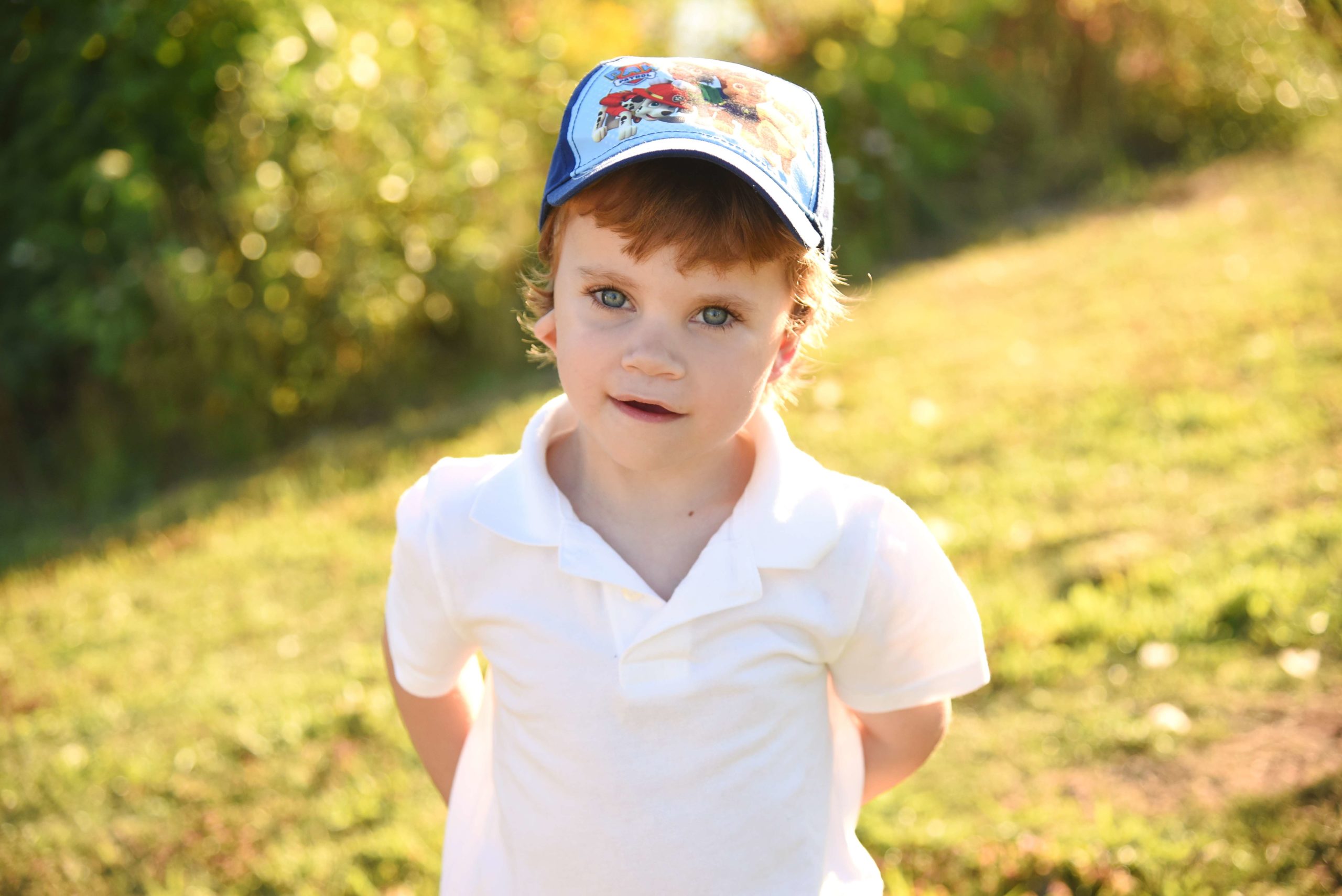 Bloomington, Indiana – May 2, 2017 — May is the month set aside to celebrate mothers. Mother’s Day is one of the most universally acknowledged holidays shared across cultures and traditions, and it holds even greater significance for the Hume family of Beaverton, Oregon. Harrison Hume is alive and rambunctious today because his mother, Rory, donated a kidney to Harrison. With this gift, Rory gave her son a second chance at life.
Bloomington, Indiana – May 2, 2017 — May is the month set aside to celebrate mothers. Mother’s Day is one of the most universally acknowledged holidays shared across cultures and traditions, and it holds even greater significance for the Hume family of Beaverton, Oregon. Harrison Hume is alive and rambunctious today because his mother, Rory, donated a kidney to Harrison. With this gift, Rory gave her son a second chance at life.
For many reasons, Harrison is a very special four-year-old. Born a month early in August 2012, Harrison spent the first 11 days of life in the NICU. Harrison’s parents, Rory and Travis, were not taken completely by surprise by his days in the NICU because Harrison had been diagnosed with chronic kidney disease in utero at Rory’s 20-week pregnancy check-up. While in the NICU, his medical team discovered the tiny baby had a heart murmur and branchiootorenal syndrome, which is a condition that disrupts development of the tissue in the neck and causes malformation of the ears and kidneys. As a result, Harrison’s left ear folds over and he was born with pits, which are open holes where his sinuses drain in his neck instead of through his nose. At nine months, Harrison was also diagnosed with hydrocephalus, or fluid on the brain. At 11 months, he underwent a brain surgery procedure called endoscopic third ventriculostomy (ETV) to relieve pressure. At 18 months, Harrison underwent surgery to close the pits in his neck and to reroute sinuses through his nose.
In addition to these surgeries, since birth Harrison took daily medication and was given a restricted, low potassium diet. This formula of diet and medications kept his creatinine (the number that measures kidney function) at a normal range for a toddler with chronic kidney disease. In order to receive a transplant, Harrison had to be 20 centimeters long from his pelvis to his sternum. In July 2014 Harrison’s growth slowed, which prompted use of human growth hormone via a nightly shot to supplement his growth — all in the hopes of the toddler growing tall enough to receive a kidney transplant.
In January 2015 Harrison’s creatinine became elevated and the transplant process moved into high gear for the Hume family. Rory and Travis were told their health insurance dictated that Harrison’s kidney transplant would have to be performed in Seattle, San Francisco or Los Angeles because these were considered ‘centers of excellence.’ But Rory and Travis wanted to have the transplant done at Doernbecher Children’s Hospital in Portland, which was about 10 miles from their Beaverton home. They were also told that Doernbecher could not accept their insurance for kidney transplants, and Rory and Travis became increasingly frustrated. A family member did some research and discovered they could request a single case agreement, which meant the family’s healthcare provider and the kidney transplant facility could try to find a solution so Harrison could receive his transplant in Oregon.
Rory works as a Brand Marketing Director for Nike, Inc. and she is an outstanding communicator. Here is the tale of how Harrison came to have his mommy’s kidney … in her words:
“In May 2015 we found out our single case agreement was approved and in June we began Harrison’s testing. In July both Travis and I were tested to see if either of us was a match, and a few weeks later we found out we were both a match to be his kidney donor. Travis is a stay-at-home Dad and after much discussion, we decided I would donate the kidney so Travis could care for Harrison after the surgery. The donor cannot lift anything over 10 pounds for six weeks and 20 pounds for 12 weeks, so it made sense for Travis to take care of Harrison to decrease the amount of time I would be out of work.
Throughout July and August I underwent multiple rounds of blood testing, ultrasounds, CT scans, and more. By the middle of August I was ‘approved’ to be a suitable donor for Harrison’s transplant and the transplant was scheduled for the beginning of September. But a week after being approved, I got food poisoning and was immediately tested again. It turned out I had a virus that was causing elevated levels in my liver. I could not donate my right kidney until the virus was out of my system. Right before the scheduled surgery I was tested again and the virus was still present. No transplant could occur until it was gone so we decided to push the surgery until early November so Harrison would be able to enjoy his favorite holiday, Halloween.
It was during this time that I reached out to the Children’s Organ Transplant Association (COTA). By this point in the process Travis and I knew that having the transplant at Doernbecher meant we would be paying 40% of costs out of pocket, instead of the customary 20%. We also knew that a kidney transplant is very expensive, sometimes costing well over $500,000. Travis and I started thinking about fundraising and started doing research online. Most all of the organizations we found took 10% of the proceeds or more and we were not comfortable with that. In a meeting with our social worker we talked about our fundraising research and she immediately introduced us to COTA. She said COTA was a great organization, many families use them and COTA gives back 100% of the funds raised in honor of a patient. We read the materials, checked out the COTA.org website and almost immediately filled out the application.
One of our first steps was deciding to produce a video about Harrison’s transplant journey and the COTA in honor of Harrison H fundraising effort. Up until that time, we had kept fairly quiet about Harrison’s kidney condition. For us it is a part of life, not a death sentence — just a speed bump on this journey.
In October, COTA sent a fundraising specialist to Beaverton to train our volunteers and after that, it felt real. I wrote our story for the website COTA provided to our team, and my very best friend and Harrison’s godmother crafted the message for our first Facebook post. Once the Facebook page went live, the contributions started coming in and just as importantly, the support. Such incredible kindness and generosity. It was overwhelming. In fact, the encouragement and great messages we received were why we were able to sustain such a positive attitude. Our parents got to work once everything was posted and my mom sent out over a hundred emails and my mother-in-law did the same. All of our networks were extremely generous and the COTA in honor of Harrison H contributions donations grew exponentially.
On November 10th, Harrison received one of my kidneys but as our story goes, it was not without complications. Somehow the kidney was bruised when it was removed, and when it was placed in Harrison it took a while to jump start. This required the transplant team to flush his body with fluids, which in turn collapsed his lung. The bruised kidney also caused bleeding that required Harrison to receive four blood transfusions. My kidney was too big for his body so the transplant team had to put it in horizontally rather than vertically, as originally planned. That meant they had to put in a stent between his bladder and his new kidney to make sure the infrastructure between the two worked.
Harrison spent five days in the PICU and then four more days in the hospital. He came home on Friday, November 20th.
There are so many things the doctor cannot prepare you for. Harrison came home and was a bit shell shocked. He only wanted to be near his dad. He was now scared of baths. He was now scared of any loud or perceived loud noise. For the first time, he became shy. So our rambunctious, outgoing kid retreated into a shell. He had a hard time walking and he stooped a bit. He was really skinny.
On December 5th, two weeks after he was released from the hospital and just as he was starting to feel good … we had to take him back in to remove the stent. This was a very emotional morning as he did NOT want to be at the hospital. The very good news was that his white blood count was in a good place and we could take him off quarantine. Amazing. We could go outside without wearing a mask. We could actually go out to dinner. We could enjoy the holidays.”
The Hume family stepped into 2016 with more surgeries and procedures to try and make sure Harrison was receiving adequate nutrition and liquids. Again, these in-hospital procedures were traumatic for Harrison but he would calm down when Rory and Travis were able to be with him in recovery. Once discharged to home, they got comfortable giving medicines and fluids to Harrison through his new G tube and thought things might settle down a bit with Harrison’s medical care. Unfortunately, after weeks of pain for Harrison and numerous visits to his doctors, it was discovered the G tube that had been surgically placed needed to be changed to a different size and once that was done, several weeks of ER visits and doctors’ appointments were behind the Hume family — or so they hoped.
Later the week of discharge, they received a call from the hospital because one of Harrison’s blood draws had come back positive for BK, which is a kidney-specific virus. BK can turn into BK Van and 80% of people can lose their kidney when BK Van develops. So for four weeks, the Humes worked through various medications with Harrison’s transplant team and finally had to do inpatient IV therapy. Harrison received two infusions over the course of two weeks and the Humes were told the BK was gone.
According to Rory, “Throughout all of these challenges, Harrison continues to be an outgoing, spunky, fun, rambunctious little boy. He is funny and endearing and bright and while he still gets nervous at loud noises and is a bit shy when meeting new people, we know this too shall pass and soon it will be smooth sailing with his new kidney.”
To date, the COTA in honor of Harrison H team of volunteers has raised more than $120,000 for transplant-related expenses. “It feels amazing for many reasons, but most importantly with the MANY complications we have experienced and the COUNTLESS hiccups we have endured, we can focus on Harrison and be positive and upbeat for him. Because of COTA, we can see silver linings in these situations. Because of COTA, we have hope,” said Rory.
“Working with COTA set into motion a chain of events that has forever changed our lives. It’s not just about the fundraising. But knowing we needed to fundraise for transplant-related expenses prompted us to take our story to social media, and messages of hope from friends and strangers buoyed us in times of stress. Working through COTA for fundraising introduced us to new friends and reacquainted us with old friends and it even inspired an article in The Boston Globe. COTA is at the heart of Harrison’s support system, and the ecosystem that has grown out of that support rewards us all the time.”
Happy Mother’s Day to an amazing COTA Mom!

